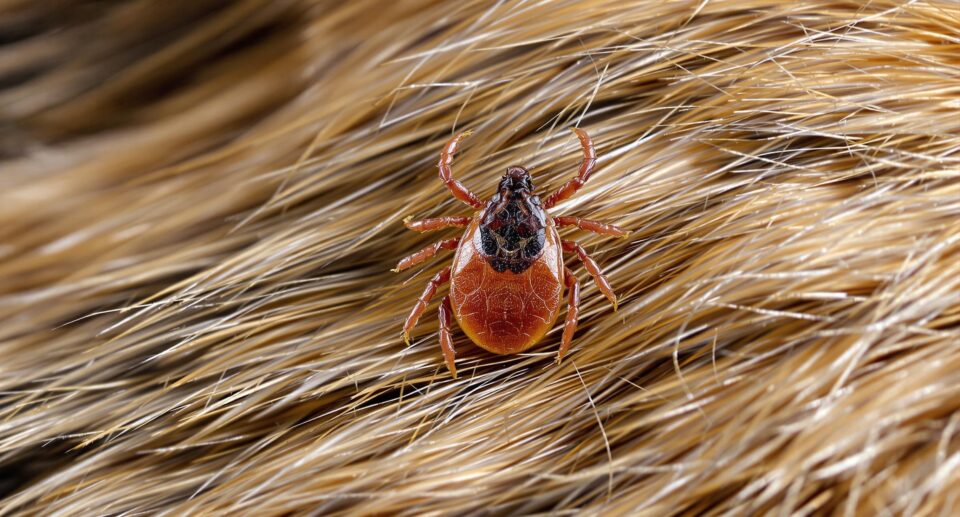Why Controlling Ticks On Dogs Improves Public Health

Dogs are a tick’s best friend – often outdoors, low to the ground, and covered in fur that’s easy to hide in, giving it plenty of time to feast on a blood meal before it’s noticed.
But ticks are more than just a nuisance feeding off our dear dogs. Any time your dog goes outside, ticks can use them to hitch a ride everywhere your dog goes, spreading disease to you, your dog and human family members.
Why Ticks Really Bite
When a tick bites you or your dog, it does so much more than suck up blood.
The tick’s saliva may contain cementum – a substance that helps the tick “cement” itself to the skin, allowing it to latch for days as it feeds.
Tick saliva can also contain neurotoxins that prevent the host from feeling pain and irritation from the bite. That’s why it’s so easy for you or your dog to get bitten by a tick without noticing right away.
When you find a tick on your dog, quick, proper removal is vital to minimize the chances of a tick-borne infection. Lyme disease, Rocky Mountain Spotted Fever, tick paralysis, and Ehrlichia are all transmitted by ticks. If your dog has been bitten by a tick, remove it, if possible, and visit your veterinarian. If you’ve been bitten by a tick, call your regular doctor.
If you don’t remove the tick properly, its head can get stuck under the skin, which can sometimes lead to a skin infection. It’s also possible to inadvertently squeeze the body, causing the tick to regurgitate its stomach contents, increasing the risk of tick-borne illnesses. Carefully remove an embedded tick with tweezers, or, better yet, a specialized tool like TickSee Tick Removal Kit.
Controlling Ticks On Dogs And On Your Property
Any time you take your dog on a hike, or let them out in your backyard if your property has brush or leaf piles where ticks lurk, you should check your dog for ticks. Before latching and feeding, ticks can be as small as a sesame seed. Check over your dog’s whole body, paying special attention to the area around their ears, around the base of their neck, and between their toes.
People who live in households with pets have been found to be significantly more likely to encounter ticks. Compared to people without pets, you’re 1.83 times more likely to find a tick crawling on you, and 1.49 times more likely to find one latched onto you.
What’s more, blood meals are essential to the tick’s life cycle. After they fill up on blood, they typically drop off and lay eggs or mate. By controlling ticks on your dog, you can help keep their population under control and help prevent the spread of tick-borne diseases.
Use a flea and tick preventative to keep ticks from feeding on your dog. A Seresto collar can protect your dog for up to 8 months.
You’ll also want to treat your home and garden. If a tick falls off your pet inside your home, it may lay eggs – up to several thousand at a time. It’s also common for ticks to reside in tall grass, wooded areas, and leaf piles, so be sure to clear debris and treat the area to kill ticks and keep them from returning.





